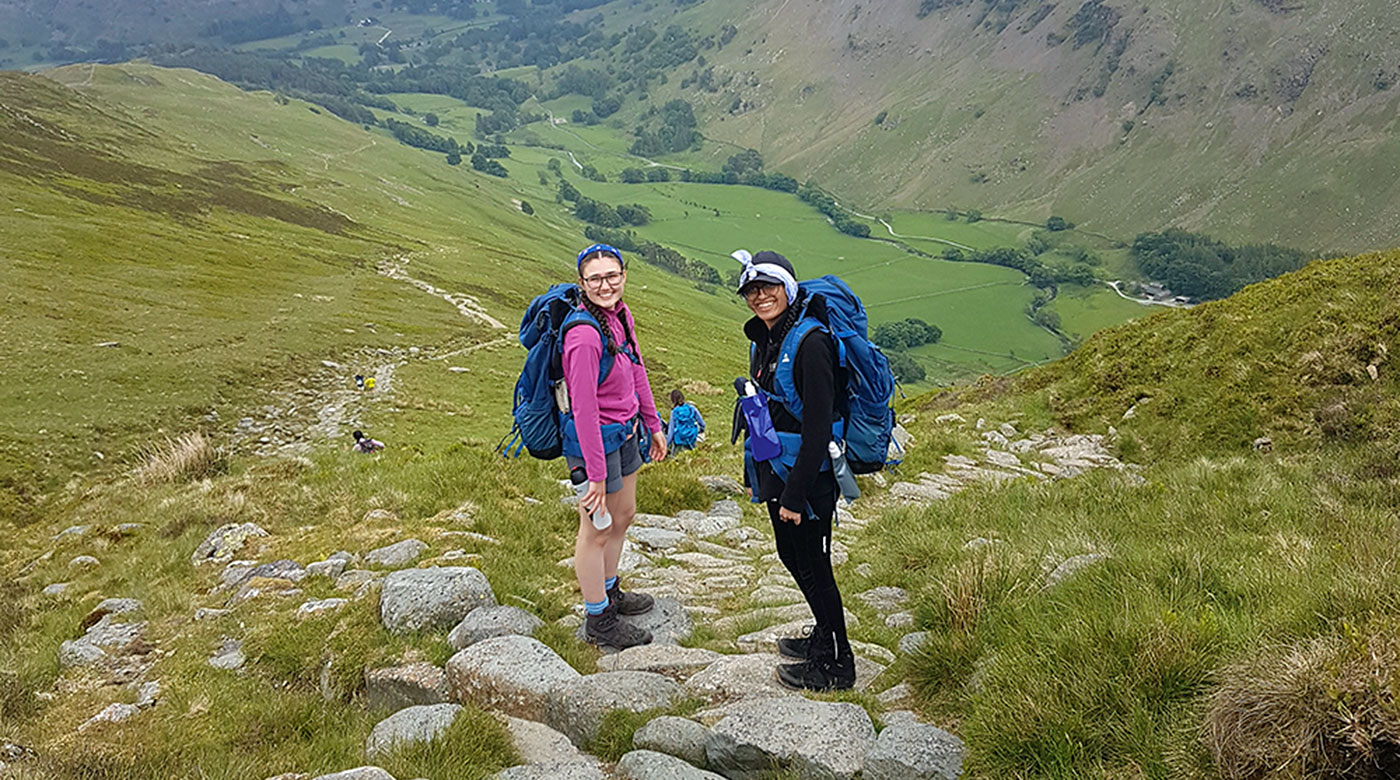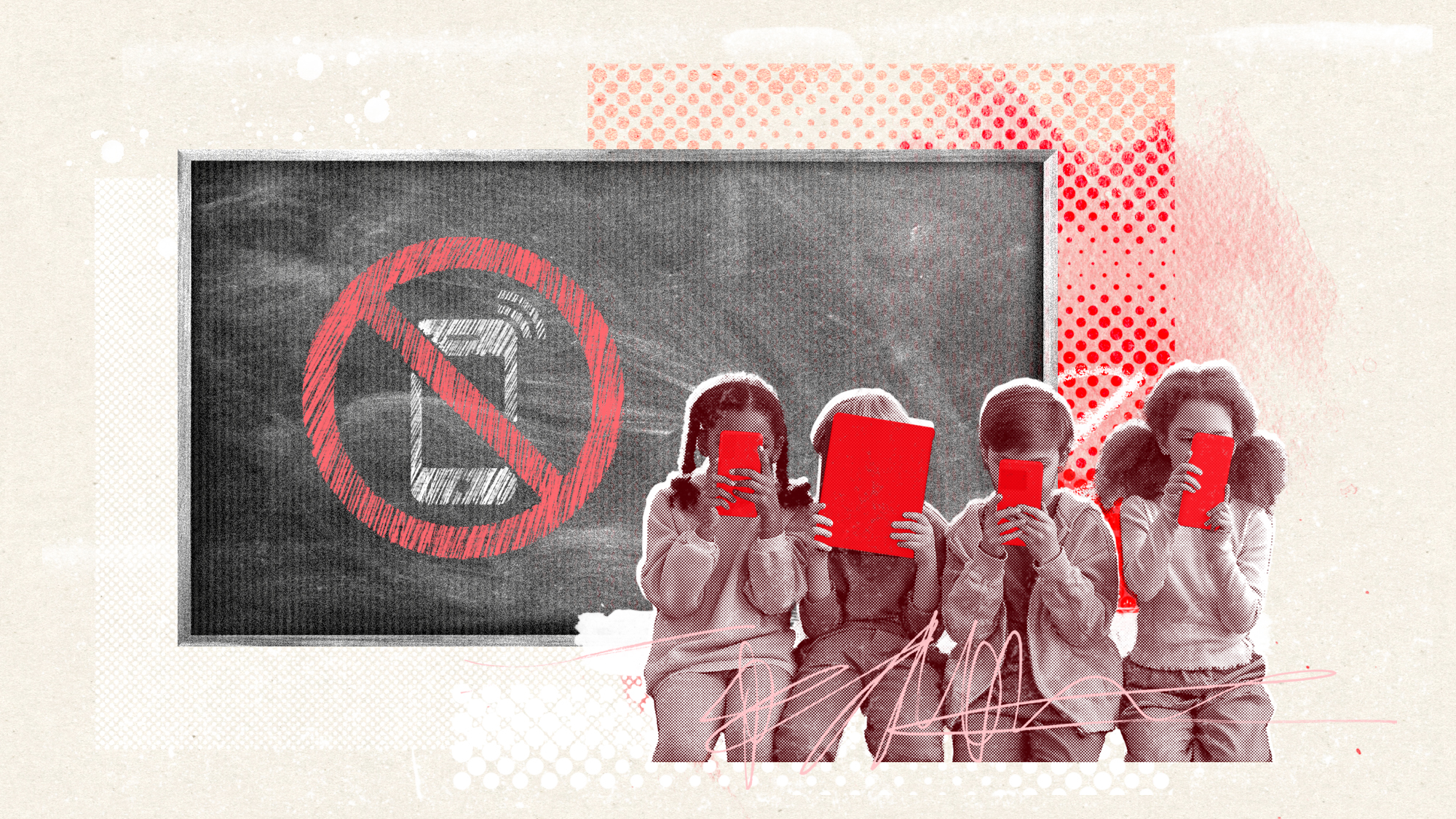The Duke of Edinburgh Award: building confidence and resilience
Confidence, independence and teamworking skills are just some of the benefits young people gain from doing the Duke of Edinburgh’s Award. Dorothy Lepkowska explains what it entails

A free daily email with the biggest news stories of the day – and the best features from TheWeek.com
You are now subscribed
Your newsletter sign-up was successful
What is the Duke of Edinburgh’s Award?
The Duke of Edinburgh’s Award, or DofE as it is more commonly known, is a unique opportunity for young people to challenge themselves by learning a new skill, taking on a physical activity, volunteering and completing an expedition. It comprises a series of programmes at three progressive levels – Bronze, Silver and Gold. The Bronze and Silver awards have four sections, the Gold five. The Bronze award is generally taken by pupils aged 14 and up, the Silver by those aged 15 and up and the Gold by students aged 17 and 18.
How did it start?
The Week
Escape your echo chamber. Get the facts behind the news, plus analysis from multiple perspectives.

Sign up for The Week's Free Newsletters
From our morning news briefing to a weekly Good News Newsletter, get the best of The Week delivered directly to your inbox.
From our morning news briefing to a weekly Good News Newsletter, get the best of The Week delivered directly to your inbox.
The award was set up in 1956 by the Duke of Edinburgh, who died in April at the age of 99. He had a lifelong commitment to inspiring, empowering and developing young people and in setting up the DofE he helped to transform the lives of millions of young people worldwide. More than 6.7 million young people have taken part in the last 65 years and 3.1 million have achieved their award.
How many students take it every year?
More than 330,000 young people across the UK are currently doing their DofE, including 180,000 who started their DofE programme in 2020/ 21. More than a fifth of new participants are young people who face financial hardship or social exclusion and they are supported by more than 3,700 partner organisations and 40,000 adult volunteers.
DofE is highly regarded by UK employers such as Heathrow Airport, Royal Mail and British Gas, who endorse the skills and attributes developed by young people while doing the programme. The DofE team aims to reach more than one million more young people in the UK over the next five years as part of its Youth Without Limits strategy, which was launched in June 2021.
A free daily email with the biggest news stories of the day – and the best features from TheWeek.com
What do students have to do?
The aim of DofE is to help young people develop a range of skills, such as confidence, resilience, independence and teamwork. The activities and tasks can be challenging and all three levels involve learning new skills, volunteering, physical development and an expedition, which in normal times can range from sailing the Norfolk Broads to biking along the Thames cycle path. Expeditions vary from a minimum of two days and one night at Bronze level to four days and three nights at Gold level. The Gold award also has a residential section, where students undertake a shared activity in a residential setting for five days and four nights.
Aaliyah Bax, 17, a year 13 student at Bolton School Girls’ Division, has completed all three levels of the award. She hopes to study medicine and volunteered at a local hospice to develop her skills and care for vulnerable patients. “The experience taught me resilience as it was emotionally quite tough working in that environment – but it also helped to build my confidence,” she says. “I found the expedition quite tough physically and emotionally and there were a lot of challenges that required planning and teamwork.”
What do teachers think of DofE?
Teachers and students agree that DofE offers an exciting, fun and sometimes challenging dimension to their education. Emma Lindle, outdoor learning tutor at Bolton School Girls’ Division, says one of the most difficult aspects for participants is moving out of their personal comfort zone.
“The programme allows the students to acquire skills and values they might not necessarily pick up in the classroom,” she says. “It allows them to flourish as individuals and it builds character. Their experiences also give them something additional to talk about in university and job applications and interviews. It shows what they can do and that they are adaptable and versatile in their outlook.”
Nicola Harwood, DofE awards manager and teacher of health and food technology at Lomond School in Helensburgh, Scotland, says the programme is an “important part of school life”, though participation is optional.
“Aside from the skills they develop, the students often also establish new friendship groups based on their activities and together they make memories that will last a lifetime,” she says. “During one expedition, a group of boys forgot their tent and had to wait for one to be delivered. We’ve also had tents blow away in storms. They won’t forget these experiences. The volunteering aspect allows the students to give something to their local community, while the physical activities are so important for their health and wellbeing – particularly during the pandemic of the past year when our lives were so limited.”
What do students think?
Lomond School student Helena Geoghan, 18, is completing the Gold award and volunteered to work with young children at a local primary school. She hopes to
study immunology, leading ultimately to a career in medicine. “My confidence really came on because I had to go out into an environment where I didn’t know anyone,” she says. “I now find it so much easier to talk to people at the first time of meeting them. It also proved to me that I was able to work independently, though I prefer to work in a team.”
What happens when students achieve their Gold awards?
In normal, non-pandemic times young people who achieve their Gold awards are invited to a presentation ceremony at St James’s Palace, Buckingham Palace Gardens, the Palace of Holyroodhouse in Scotland or Hillsborough Castle in Northern Ireland. The events are attended by a member of the Royal Family.
How long does it take?
The Gold, Silver and Bronze programmes take different amounts of time to complete because they vary in the levels of challenge and the minimum age required. Participants can do the levels in any order, but most begin at Bronze and work their way upwards. The Bronze level usually takes at least six months, the Silver 12 months (or six if the candidate already has the Bronze) and the Gold 12 to 18 months.
In some UK schools, the DofE programme is voluntary but in others students do the Bronze award as part of the wider PSHE (personal, social, health and economic) curriculum. By the time students work towards their Silver and Gold awards the activities take place outside the normal school timetable.
-
 The week’s best photos
The week’s best photosIn Pictures An explosive meal, a carnival of joy, and more
-
 The ‘ravenous’ demand for Cornish minerals
The ‘ravenous’ demand for Cornish mineralsUnder the Radar Growing need for critical minerals to power tech has intensified ‘appetite’ for lithium, which could be a ‘huge boon’ for local economy
-
 Why are election experts taking Trump’s midterm threats seriously?
Why are election experts taking Trump’s midterm threats seriously?IN THE SPOTLIGHT As the president muses about polling place deployments and a centralized electoral system aimed at one-party control, lawmakers are taking this administration at its word
-
 The pros and cons of banning cellphones in classrooms
The pros and cons of banning cellphones in classroomsPros and cons The devices could be major distractions
-
 School phone bans: Why they're spreading
School phone bans: Why they're spreadingFeature 17 states are imposing all-day phone bans in schools
-
 Schools: The return of a dreaded fitness test
Schools: The return of a dreaded fitness testFeature Donald Trump is bringing the Presidential Fitness Test back to classrooms nationwide
-
 Send reforms: government's battle over special educational needs
Send reforms: government's battle over special educational needsThe Explainer Current system in 'crisis' but parents fear overhaul will leave many young people behind
-
 Education: Can public schools be religious?
Education: Can public schools be religious?Feature A Supreme Court seems ready to rule in favor of religious charter schools in Oklahoma, which could reshape public education
-
 America's academic brain drain has begun
America's academic brain drain has begunIN THE SPOTLIGHT As the Trump administration targets universities and teachers, educators are eying greener academic pastures elsewhere — and other nations are starting to take notice
-
 Schools' Send crisis: how can it be fixed?
Schools' Send crisis: how can it be fixed?Today's Big Question Government urged to reform support for children with special educational needs and disabilities and save councils from bankruptcy
-
 Unschooling: the radical education trend raising eyebrows
Unschooling: the radical education trend raising eyebrowsUnder the radar Some parents are letting their children lead their education